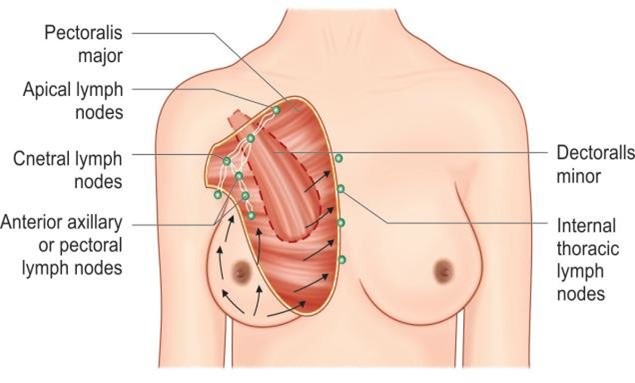A nurse is providing teaching about the Dietary Approaches to Stop Hypertension (DASH) diet to a client who has hypertension. Which of the following instructions should the nurse include?
Consume ten percent of total calories from saturated fat.
Consume foods that are high in calcium.
Increase intake of refined carbohydrates.
Limit sodium intake to 3,200 milligrams per day.
The Correct Answer is B
Choice A reason: Consume ten percent of total calories from saturated fat is not a correct instruction for the DASH diet. The DASH diet recommends limiting saturated fat intake to less than six percent of total calories, as saturated fat can raise blood cholesterol and increase the risk of heart disease.
Choice B reason: Consume foods that are high in calcium is a correct instruction for the DASH diet. The DASH diet emphasizes eating foods that are rich in calcium, such as low-fat dairy products, leafy green vegetables, and fortified cereals. Calcium helps regulate blood pressure and prevent osteoporosis.
Choice C reason: Increase intake of refined carbohydrates is not a correct instruction for the DASH diet. The DASH diet advises reducing intake of refined carbohydrates, such as white bread, white rice, and sweets. Refined carbohydrates can increase blood sugar and insulin levels and contribute to obesity and diabetes.
Choice D reason: Limit sodium intake to 3,200 milligrams per day is not a correct instruction for the DASH diet. The DASH diet recommends limiting sodium intake to less than 2,300 milligrams per day, or even lower to 1,500 milligrams per day for some people. Sodium can increase blood pressure and fluid retention and damage the kidneys and blood vessels.
Nursing Test Bank
Naxlex Comprehensive Predictor Exams
Related Questions
Correct Answer is C
Explanation
Choice A reason: Using liquids to clear food from the client's mouth is not a safe intervention for dysphagia. Liquids can easily enter the airway and cause aspiration, which is the inhalation of food or fluids into the lungs. Aspiration can lead to pneumonia, respiratory distress, and death.
Choice B reason: Tilting the client's head backwards to facilitate swallowing is not a safe intervention for dysphagia. This position can also increase the risk of aspiration, as it opens the airway and allows food or fluids to flow into it.
Choice C reason: Adding a thickening agent to liquids is a safe and effective intervention for dysphagia. Thickened liquids are easier to swallow and control, as they move more slowly through the mouth and throat. They also reduce the risk of aspiration, as they are less likely to enter the airway.
Choice D reason: Placing the client in a semi-Fowler's position is not a safe intervention for dysphagia. This position can also increase the risk of aspiration, as it lowers the head and neck and reduces the closure of the airway. A better position for dysphagia is upright or high-Fowler's, which elevates the head and neck and enhances the closure of the airway.
Correct Answer is A
Explanation
Choice A reason: Alternating the first breast that is offered to the baby with each feeding is a good practice for breastfeeding because it can ensure equal stimulation and drainage of both breasts, which can prevent engorgement, mastitis, or low milk supply. Alternating breasts can also provide the baby with both foremilk and hindmilk, which have different compositions and benefits.
Choice B reason: Storing breast milk in the refrigerator up to 48 hours is not a good practice for breastfeeding because it can reduce the quality and safety of the milk. Breast milk should be stored in the refrigerator for no longer than 24 hours or in the freezer for no longer than 6 months. Breast milk should also be stored in clean, sterile containers and labeled with the date and time of expression.
Choice C reason: Nursing the baby once every 4 hours is not a good practice for breastfeeding because it can decrease the milk production and supply, which can affect the growth and development of the baby. Breastfeeding should be done on demand or at least every 2 to 3 hours during the day and every 3 to 4 hours at night. Breastfeeding should also last for at least 10 to 15 minutes per breast or until the baby is satisfied.
Choice D reason: Offering the baby water between feedings is not a good practice for breastfeeding because it can interfere with the baby's appetite and intake of breast milk, which can cause dehydration, malnutrition, or failure to thrive. Breast milk contains enough water and nutrients to meet the baby's needs for the first six months of life. Water should be avoided or limited until the baby starts solid foods.

Whether you are a student looking to ace your exams or a practicing nurse seeking to enhance your expertise , our nursing education contents will empower you with the confidence and competence to make a difference in the lives of patients and become a respected leader in the healthcare field.
Visit Naxlex, invest in your future and unlock endless possibilities with our unparalleled nursing education contents today
Report Wrong Answer on the Current Question
Do you disagree with the answer? If yes, what is your expected answer? Explain.
Kindly be descriptive with the issue you are facing.
